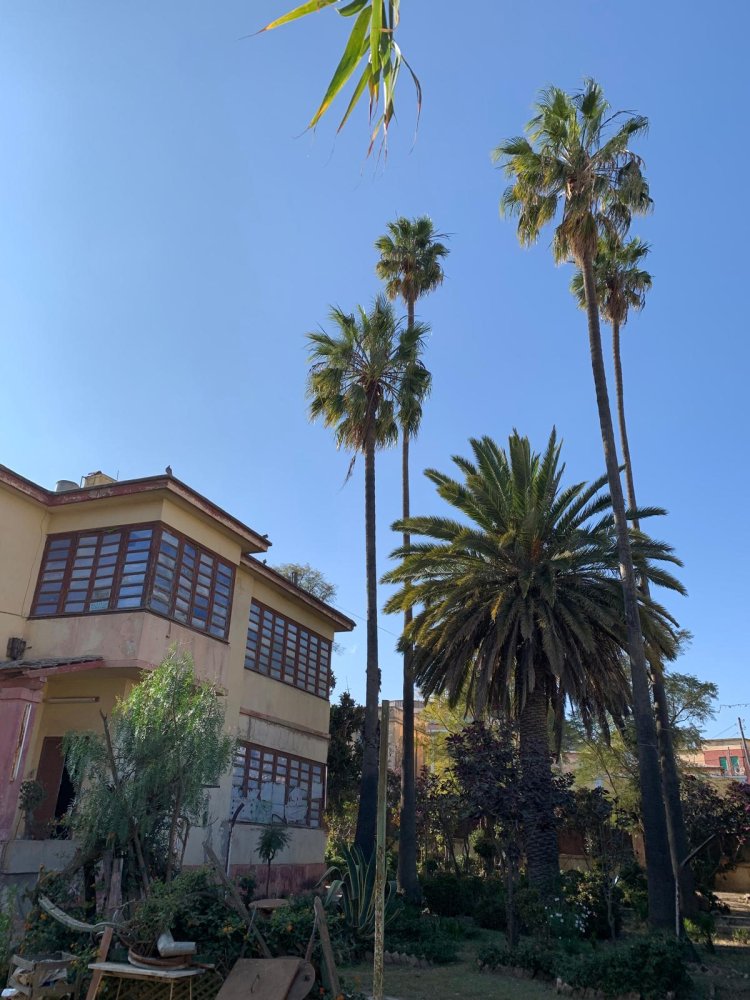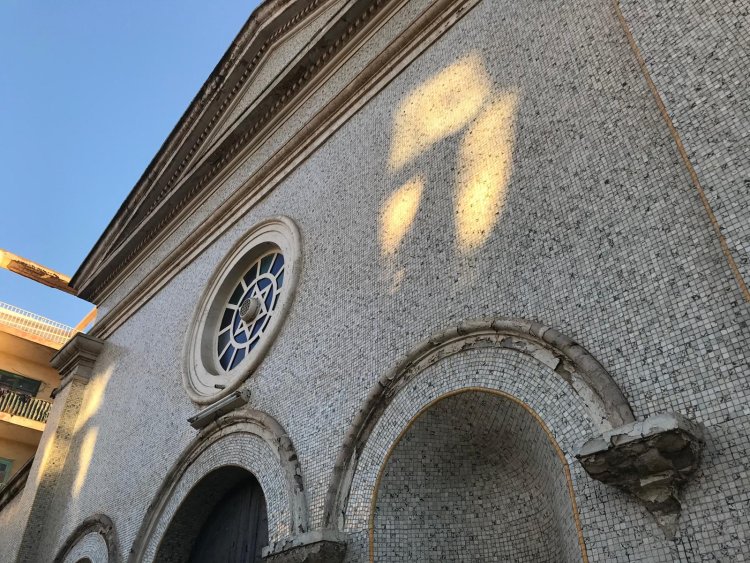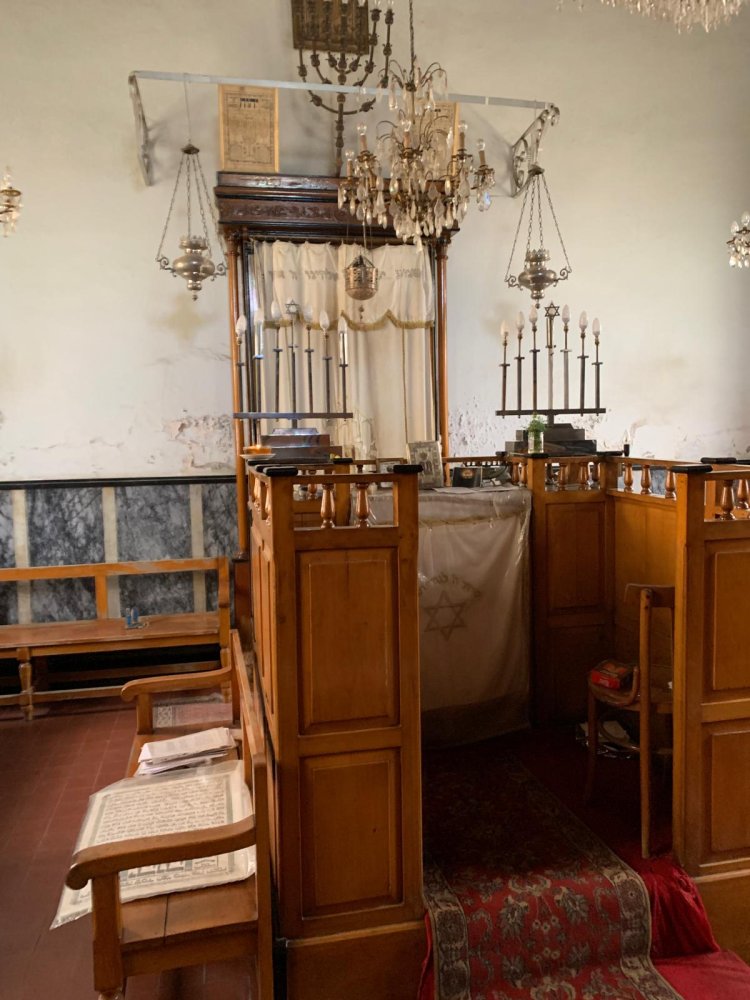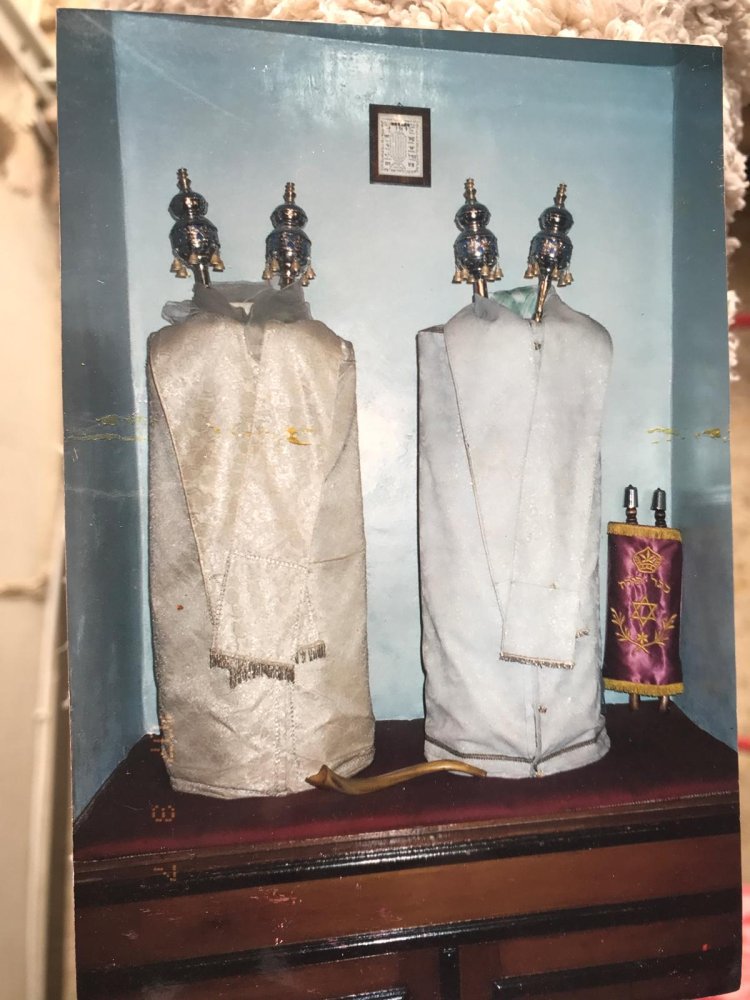The Last Jew in Eritrea in an Interview with Hidabroot: "Sometimes I Feel Lonely, but God is with Me"
Sammy Cohen is the only Jew living in Eritrea, and he has a dream he never stops praying for: "I wish ten Jews would come here for a minyan."
- פורסם י"א כסלו התשפ"ה
#VALUE!
![Here I was born. Sammy Cohen's home in Asmara]() Here I was born. Sammy Cohen's home in AsmaraHere I was born. Sammy Cohen's home in Asmara
Here I was born. Sammy Cohen's home in AsmaraHere I was born. Sammy Cohen's home in Asmara![Out of the depths I called You. The prayer platform in the synagogue]() Out of the depths I called You. The prayer platform in the synagogueOut of the depths, I called You. The prayer platform in the synagogue
Out of the depths I called You. The prayer platform in the synagogueOut of the depths, I called You. The prayer platform in the synagogue![The ancient Torah scrolls in the synagogue]() The ancient Torah scrolls in the synagogueThe ancient Torah scrolls in the synagogue
The ancient Torah scrolls in the synagogueThe ancient Torah scrolls in the synagogue
Sammy Cohen, 77 years old, is the last Jew residing in Eritrea. His home is in the capital city of Asmara. Surrounded by millions of Christians and Muslims, Cohen is the only Jewish beacon shining light on the entire region.
So what is he doing there, in this foreign and remote country? How did he get there, and why does he not immigrate to his people and his land?
"Everyone Left One After the Other"
The story of the Jewish community in Asmara begins in 1905 when many families from Aden in Yemen arrived in the area for trade. They settled there and soon began leading vibrant community lives: they established a synagogue, educational centers for children, and even a Jewish cemetery. A state survey conducted at the time found that no fewer than 120 Jews lived there.
The community began to dissolve in the 1970s. Eritrea was affected by the socialist revolution, and the military forces began to impose a harsh regime that severely harmed the Jewish community as well. "It got to the point where life in Asmara became unbearable," Cohen recalls those days. "Most of the time we were under curfew, electricity wasn't flowing, and food supply was very minimal. During those days, much of our property was confiscated and nationalized, leaving many families destitute in an instant."
These were fateful days for the Jewish community in Asmara, and indeed most of its members decided to leave and immigrate to the USA. Later, some of them made Aliyah as part of Operation 'Wings of Eagles'. "Our family was one of the few that stayed here. Over the years that followed, everyone left one by one, and my family too left everything behind and settled in Rome and Israel. Since then, I am the only one left in Asmara."
 Here I was born. Sammy Cohen's home in Asmara
Here I was born. Sammy Cohen's home in Asmara
"I Don't Have Much to Do Here"
In Asmara, the streets are mostly old and neglected. The synagogue is located on the city's main street. Cohen tells that the synagogue was the first religious building to be established in the area, and only after it were other religious buildings of different populations established. A particularly magnificent sight is seen at the synagogue at sunrise when the sun's rays cast the letter 'He' on the front wall. "This is a clear sign that the Divine Presence dwells here," Cohen says excitedly.
The letter He is reflected on the synagogue wall in Asmara The letter He is reflected on the synagogue wall in Asmara
The letter He is reflected on the synagogue wall in Asmara
In 2005, marking one hundred years since the establishment of the synagogue, a festive and special event was held at the place. The city's streets were decorated, string lights were hung, and an exciting orchestra welcomed the attendees. "Everyone who left the community came to participate in this celebration," he recalls. "It was an exciting and unforgettable event."
The great celebration essentially became the "swan song" of the Jewish community in Asmara. That day marked the last minyan prayer in the history of the synagogue. Since then, Cohen prays there alone, maintains and cares for it closely and daily.
Describe your daily routine.
"I wake up early in the morning, go to the synagogue, open it, and pray there. During the day, sometimes I clean the synagogue, and sometimes I visit the cemetery and tend to the old graves. There's not much to do where I live."
Cohen relates that in recent years, the Eritrean government has significantly reduced the job market. "The government does not give citizens the opportunity to work. It holds all the resources in its hands, without giving residents the option to progress and develop. This is part of the president's policy. This is how he manages to hold the leadership of the country and ensure his grip on it absolutely and indisputably."
 Out of the depths I called You. The prayer platform in the synagogue
Out of the depths I called You. The prayer platform in the synagogue
"An Israeli Doctor Healed the President"
The President of Eritrea, Isaias Afwerki, is one of Africa's military revolutionaries. In 1966, when the struggle for Eritrea's independence began, Afwerki joined the "Eritrean People's Liberation Front" organization and became its leader. He later allied with other organizations, like the RLF, fighting for his country's independence against Ethiopian military forces. In 1993, the UN initiated a referendum after which Eritrea's independence was declared. Afwerki became the country's first president.
In 1996, the president contracted malaria and was flown to Israel for medical treatment. He was treated by Dr. Eli Schwartz, a leading figure in infectious disease medicine in Israel. "He was at death's door, and a Jewish and Israeli doctor healed him," Cohen describes proudly.
Cohen was among the few who accompanied the presidential entourage on its way to Israel. Although many years have passed, he still remembers the days when Afwerki was hospitalized in Israel: "Every evening, I would walk with him in the garden of the Sheba Medical Center, and he would not stop thanking the Israelis who managed to heal him. In those days he promised me that the country under his leadership would do everything to return the confiscated property to the Jews who lived there, but today he ignores it."
Do you have contact with him today?
"No. During the time the Israeli embassy operated in Eritrea, we would gather once a year and celebrate Israel's Independence Day together with him. Since the embassy closed, contact with him ceased and there is almost no possibility of meeting him."
"God Placed Me Here"
The Israeli embassy in Eritrea operated until 2010. The embassy days are remembered by Cohen as a refreshing period when there were those who kept him company. Nowadays, he remains alone, the last Jew residing in the country. During the year, he alternates flying to Rome and Israel several times to visit his family and children.
How does it feel to live alone among non-Jews?
"I don't have an answer to this question," he sighs after a long silence. "I have a home to live in, I have a synagogue to pray in, and I split my time between them. What can I do? Leave? And who will take care of the synagogue? Who will visit the cemetery? God is the one who placed me here, and He is the one who keeps me here. I believe this is my mission in the world, and I am here to stay.
"Sometimes, when I feel lonely, I go to the synagogue and pray," Cohen tears up. "I know I am not alone, because God is with me. I must remain here for the synagogue and the cemetery, and I pray that God will hear my prayer and restore our Jewish community to its days of glory."
What is your message to conclude?
"I call on the Jewish people: come to visit my home and pray with me. Every morning I pray to God to send me ten Jews, so we can take the Torah scrolls out of the ark. Our synagogue houses two beautiful and magnificent Torah scrolls, and I hope that soon I can take them out with songs and dances and read them together with all the Jewish people."
 The ancient Torah scrolls in the synagogue
The ancient Torah scrolls in the synagogue